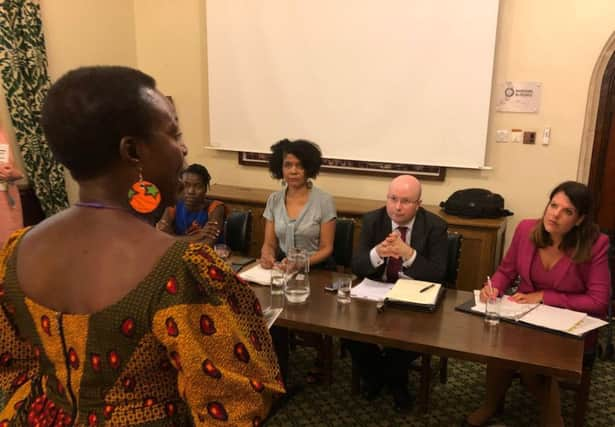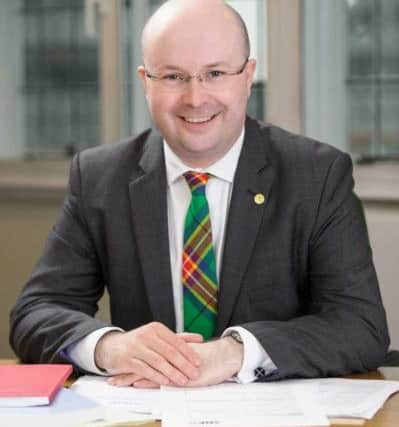Malawi gives us a warm welcome while the UK is hostile in return – Patrick Grady MP


Sadly, the same cannot be said for our Malawian friends invited to the UK, who are forced to navigate a hostile and humiliating UK visa application process.
Last month, as convenor of Westminster’s All-Party Parliamentary Group (APPG) on Malawi, I joined colleagues from the Africa and Migration APPGs to launch a major new report looking at the way people from Africa are treated as they apply for UK visas.
Advertisement
Hide AdAdvertisement
Hide AdDozens of organisations and individuals had submitted evidence to our seven-month enquiry, and discussions with the UK Immigration Minister and the independent Chief Inspector of Borders and Immigration, helped inform the research.


The report launch in Westminster was packed with a diverse and impassioned audience. Almost everyone spoke of what appeared to be an entirely dysfunctional UK visa system.
They spoke of the frustration they and their partners in Africa felt as they navigated the system; they highlighted the unreasonable evidential requirements and the frequency of simple and avoidable errors; and they highlighted the lasting negative impact this is having.
We heard from a city councillor originally from Nigeria who has given 40 years of service to the UK, working as a midwife and ultimately becoming mayor of Enfield. Despite years of trying, she has not been able to invite her sister to the UK for a short, fully-funded visit.
We heard from governmental representatives of Ghana, Uganda, Mauritania, Tunisia and Malawi, who spoke about officials entering the UK on diplomatic business being made to feel unwelcome, and the impact this was having on the UK’s international standing. Our own Scotland Malawi Partnership highlighted a case where a visa rejection letter for a major Malawian artist said: “We reject your visa because [insert reason here].”
Perhaps of most concern, was an account from the former independent Chief Inspector of the decade he spent inspecting the Home Office’s visa issuing systems. Despite regularly expressing significant concerns in his reports (in 2011 he found poor quality or incorrect decision making in 35 per cent of visa refusals), he has seen no improvement.
Scotland’s 160-year friendship with Malawi represents the best of international solidarity and partnership. More than 100,000 Scots each year actively engage in a link with Malawi. Forty-five per cent of Scots can name a friend or family member with a connection to the country. Our approach to international development sees government working in synergy with the people of Scotland, and defines its relationship with Malawi not through ‘charity’ but through a dignified two-way partnership.
One of the biggest threats to this distinctive and effective approach is a UK visa system which is hostile, humiliating and dehumanising. The system asks for three months’ worth of bank statements and wage slips, birth and marriage certificates, passports and other documentation.
Advertisement
Hide AdAdvertisement
Hide AdIt rejects applicants who cannot show private wealth, conflating poverty with presumed criminality, with no evidence base to justify this. The system seems less interested in knowing who actually does abscond (we don’t count people out of the country when they leave) and trying to stop this in an evidence-led manner, than deterring all visitors by creating a hostile environment.
Key functions of the state have been outsourced to private profit-making companies (just one of the UK Government’s recent private visa contracts was for more than £620 million), with scant consideration for the welfare of the humans trying to navigate the system.It is difficult to reconcile the realities found in our report with UK Government claims that the ‘hostile environment’ immigration policy has come to an end.
As I flew into Malawi recently, the stark contrast between the warmth of greeting I enjoyed and the way we treat those we invite from Malawi, was genuinely heartbreaking.
But what is perhaps more frustrating is the contrast between the reality of how those from Africa are treated as they navigate the UK visa system and the UK Government’s narrative of a post-Brexit ‘Global Britain’.This cannot and will not be a reality until we start to offer the same basic human dignity and respect to those we invite to the UK as we receive when we visit countries like Malawi.
Patrick Grady, MP for Glasgow North, chair of the Malawi All-Party Parliamentary Group.